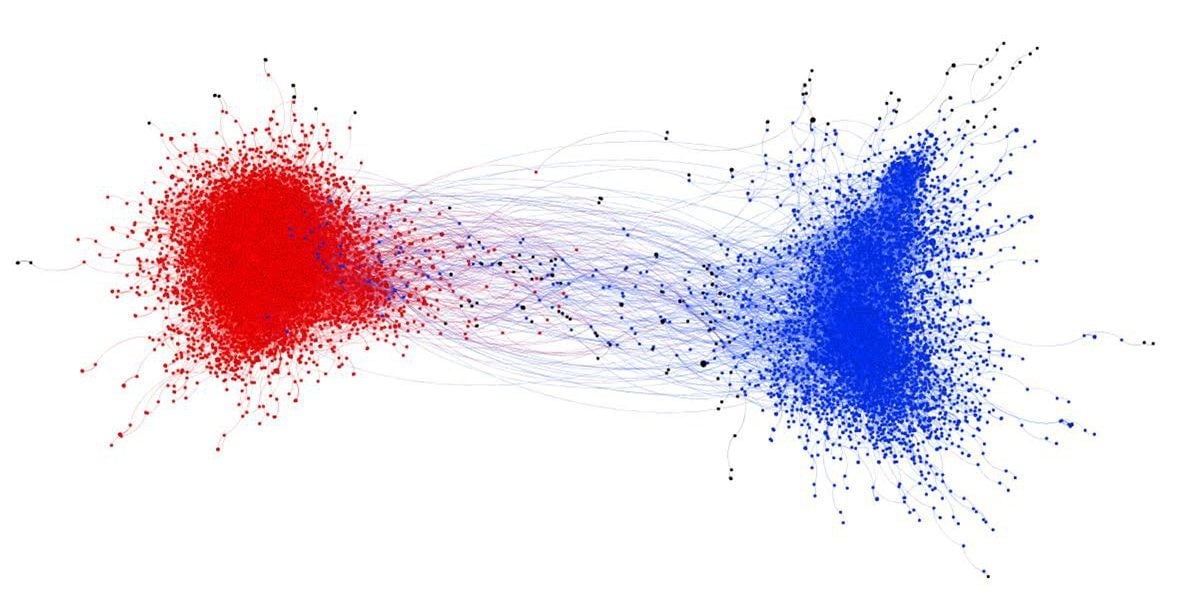One graph shows how morally outraged tweets stay within their political bubble
Thousands of people around the world have excitedly made a forceful political point with a well-honed and witty tweet. All it takes is 140 characters to make a pithy argument, and man it feels good to get a few retweets.


Thousands of people around the world have excitedly made a forceful political point with a well-honed and witty tweet. All it takes is 140 characters to make a pithy argument, and man it feels good to get a few retweets.
But, regardless of how persuasive or amusing your tweets are, chances are they’re unlikely to be well-received by anyone who doesn’t agree with you already. A study of more than half a million tweets, recently published in the Proceedings of the National Academy of Sciences, shows that morally outraged tweets tend to be widely retweeted within their political spheres—but rarely escape their bubbles.
The researchers, led by psychologist William Brady at New York University, started by analyzing the language used in 563,312 tweets about three controversial topics: Gun control, same-sex marriage, and climate change. They sorted the tweets according to their use of moral language (e.g. the word “duty”), emotional language (e.g. “fear”) and language that’s both moral and emotional (e.g. “hate”). Tweets that were strictly moral or purely emotional didn’t have higher numbers of retweets, but the researchers found a 20% increase in retweets per moral-emotional word added.
Next, the researchers looked at how much of this sharing happened within ideological networks. They estimated the ideological bent of each tweeter using an algorithm that measures political persuasion based on follower networks. For each tweet, they computed the number of retweets from those with the same ideology as the author, versus those with a different ideology. Overall, they found far more in-group than out-group retweets for messages about gun control and climate change. (Findings for same-sex marriage tweets were tending in the same direction, but not statistically significant.)
The network graph above is a visualization of those findings, with the blue representing liberal tweeters and red representing conservatives. The points represent tweets across all political topics, while the lines represent retweets. Although there’s some interaction between the two clusters, red and blue largely remain separate. Even the most moral or emotional words, it seems, aren’t powerful enough to prompt a retweet from across the aisle.